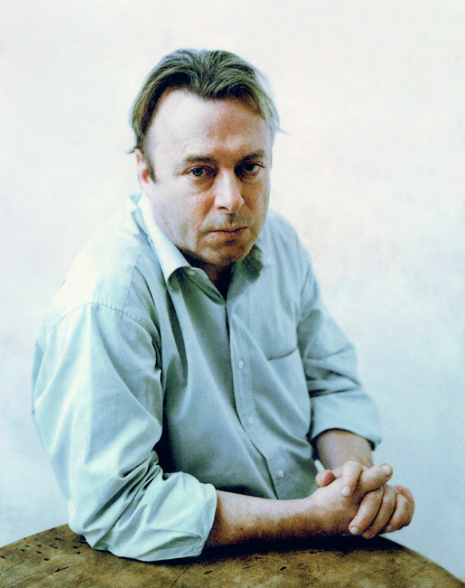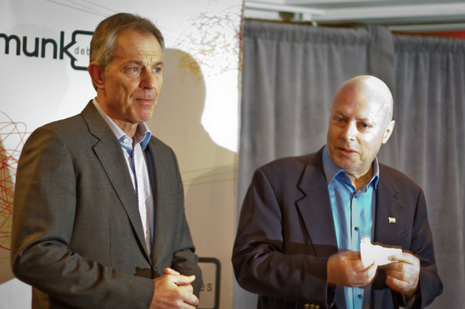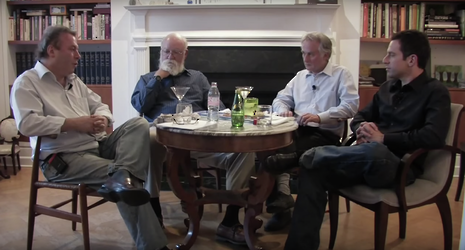In the dawn of Trump’s America, we miss Christopher Hitchens
Five years since the death of ‘The Hitch’, Harry Robertson discusses the writer’s influence, and what he would make of the political climate of 2016

It is hard to believe that the pen, voice and mind of one of the great 20th-century polemicists and free thinkers have lain still for five years, but today marks the fifth anniversary of the death of Christopher Hitchens from cancer, aged 62.
Hitchens developed the radicalism that would shape his life during his time at Oxford. As a member of the International Socialists, ‘the Hitch’, as friends called him, would spend afternoons clad in a donkey jacket and, with placard in hand, blockaded racist hairdressers and stridently opposed the Vietnam War. At night, as a popular and ambitious student, he would slip into a dinner jacket to address the Oxford Union and dine at All Souls. It was the timing of his Oxford career that was most important, however: these were the heady, revolutionary days of 1968, when a true student movement opposed odious bigotry, fascism and imperialism.
Hitchens’ contrarian and iconoclastic zeal never left him. Like his hero George Orwell, he fearlessly targeted abusers of power, no matter their status. The recently canonised Mother Teresa, for example, was “a fanatic, a fundamentalist, and a fraud.” Many of our generation will know Hitchens through hours of seamless oratory on YouTube, demonstrating his razor-sharp tongue in full effect.
“At this present moment I have to say that I feel very envious of someone who is young and active and starting out in this argument.”
Hitchens would break with ‘the Left’ on many occasions in his career, such as during his early support for the Falklands War, which he viewed as a battle against a dictator who had ‘disappeared’ thousands of his own citizens. The final breach came with 9/11, when he decried thinkers like Gore Vidal, who had hinted that Bush was involved, and Noam Chomsky, who blamed the atrocity on ‘the West’, and with the Iraq War, in which his loathing of Saddam Hussein’s fascist regime and his witnessing of the suffering of the Kurds led him to support intervention.
Hitchens was flawed, as he himself would have admitted. His vociferous support for the Iraq War and its continuation, even as it went badly wrong, was an example of a lack of nuance that was occasionally a weakness in his work. He later would say Iraq had caused him “a world of pain”. He justified his position not with reference to ‘global security’ or weapons of mass destruction, but through a desire to see a country and a people he cared for deeply liberated from the tyranny of a genocidal regime.

Since his death, the world has changed more dramatically than we could ever have imagined. We are tantalised by what Hitchens would have made of it all. He once said of Trump: “at least he’s worked out how to cover 90 per cent of his skull with 30 per cent of his hair.” We can be assured that a special kind of venom would have been reserved for the philistines like Jeff Sessions, and their insidious bigotry, that make up Trump’s cabinet appointments.
Hitchens’ polemical style in those rosy years before his death was concentrated on religion. He never knew the extent to which his arguments were vindicated in ISIS-controlled Iraq and Syria, where men and women are now being thrown off buildings to their deaths for loving someone of the same gender. However the recent show of strength from Assad, aided by Russia’s political machinations, shifts the debate away from religion and back to politics. He neglected the political nuances of the Middle East in his later years, perhaps because of his bad experience over Iraq.

We can, however, turn to his prolific writings (he produced over 20 books in his lifetime, and two have been released posthumously) on a vast range of subjects, and be greeted by full-bodied prose and stirring argument. For example, the recent death of Fidel Castro – of whom he said, on a visit to Cuba as a university student, “if the most salient figure in the state and society was immune from critical comment, then all the rest was detail” – would likely have pleased him. Make no mistake, however, he warns in his book Arguably, the 2006 takeover of Raúl was a case of Marx’s famous observation that history repeats itself: “the first time as tragedy, the second time as farce”. One of Hitchens’ talents was outlining his arguments against those in a position of power with alacrity, wit and good faith.
Nevertheless, a gap is discernible in Hitchens’ writing, and it is shaped like Trump’s America. Of course, we cannot criticise him for this – the world has become more ludicrous than was conceivable at the time of his death. The pathetic journalism of the American election, and the free pass it gave to Trump, makes us cry out for a big-hitter such as Hitchens, as comfortable debating on page as he was on screen.
In an age when the values of free speech are under attack from the autocratic right, a desperate left, and a racist demagogue, Hitchens remains an example of the importance of argument and action in combatting injustice. In one of his final speeches, a Hitchens rueful of his own imminent exit from the great debate reminded us of the opportunity we have, and remarked how “at this present moment I have to say that I feel very envious of someone who is young and active and starting out in this argument.”
I will not, as was so often the case, leave the last word to the Hitch, but rather to his fellow comrade-at-arms at Oxford, the poet James Fenton, whose epitaph is apt: “He was the spirit of ’68, the revolutionary spirit. The source of many foolish things said and felt, but the source of many fine ones, too.” How we miss such a spirit today.
 News / Colleges charge different rents for the same Castle Street accommodation2 March 2026
News / Colleges charge different rents for the same Castle Street accommodation2 March 2026 News / King’s hosts open iftar for Ramadan3 March 2026
News / King’s hosts open iftar for Ramadan3 March 2026 Theatre / Lunatics and leisure centres 4 March 2026
Theatre / Lunatics and leisure centres 4 March 2026 News / Angela Merkel among Cambridge honorary degree nominees27 February 2026
News / Angela Merkel among Cambridge honorary degree nominees27 February 2026 News / News in Brief: waterworks, wine woes, and workplace wins 1 March 2026
News / News in Brief: waterworks, wine woes, and workplace wins 1 March 2026








